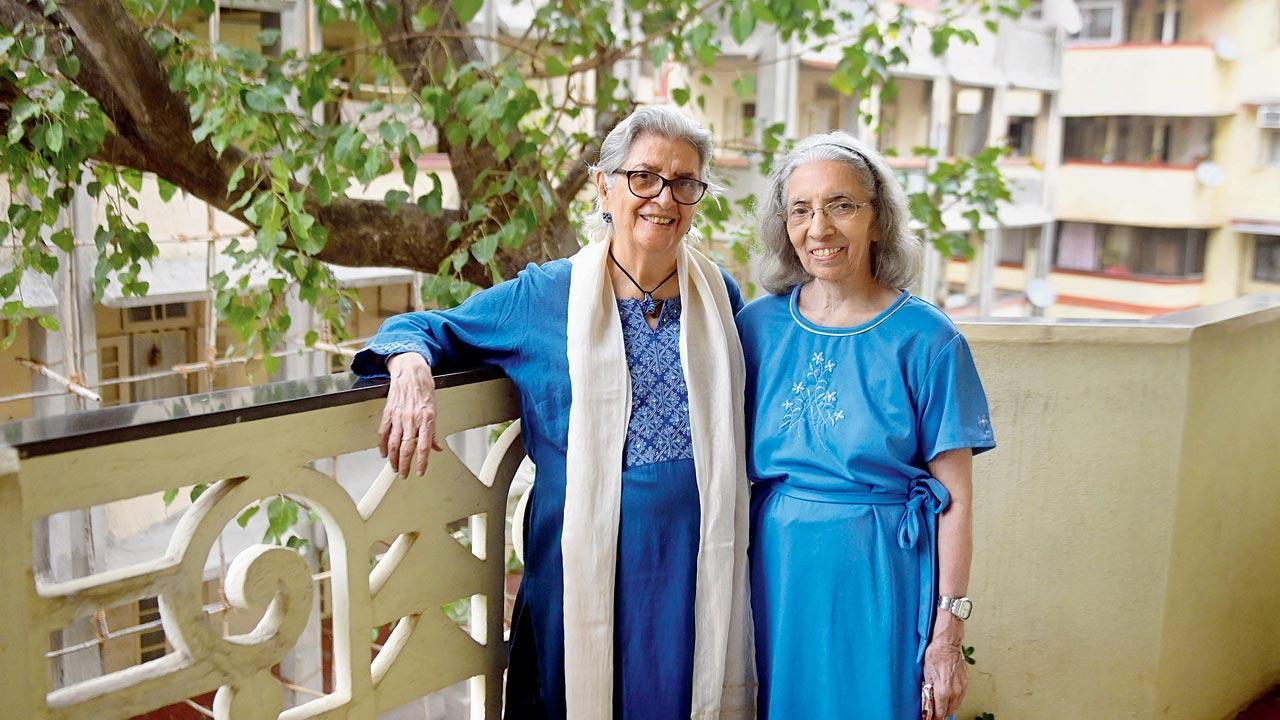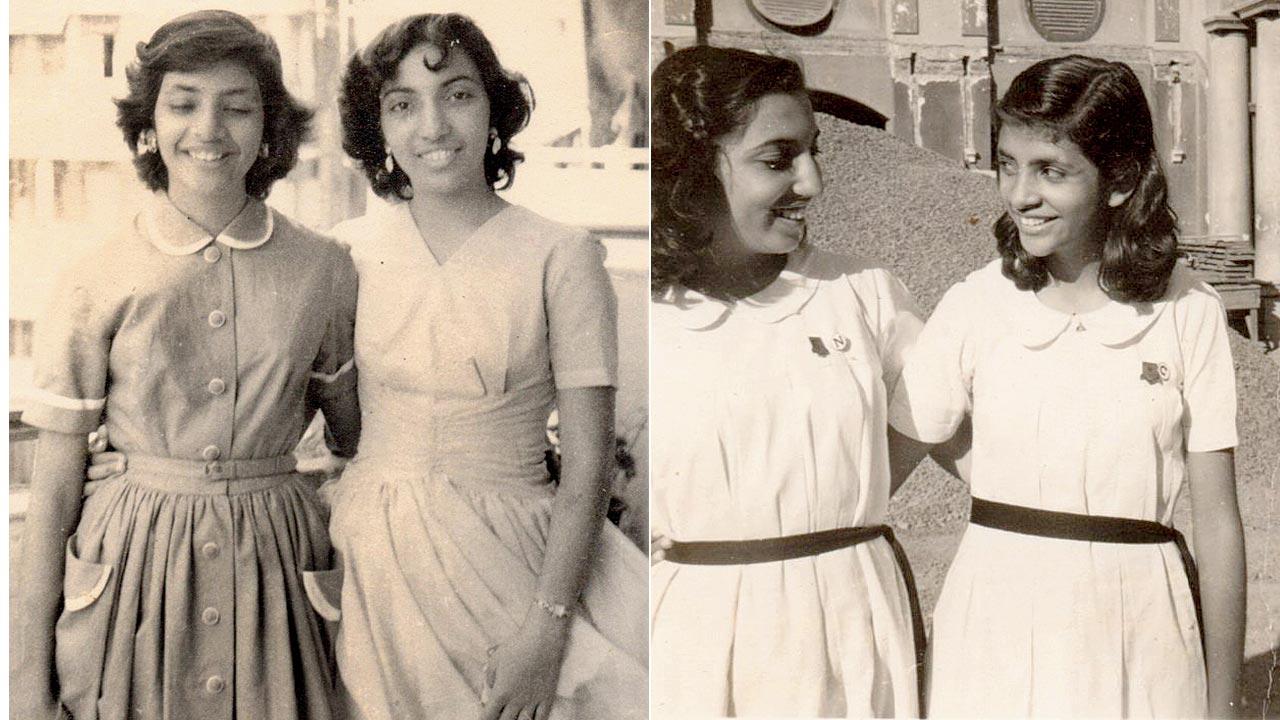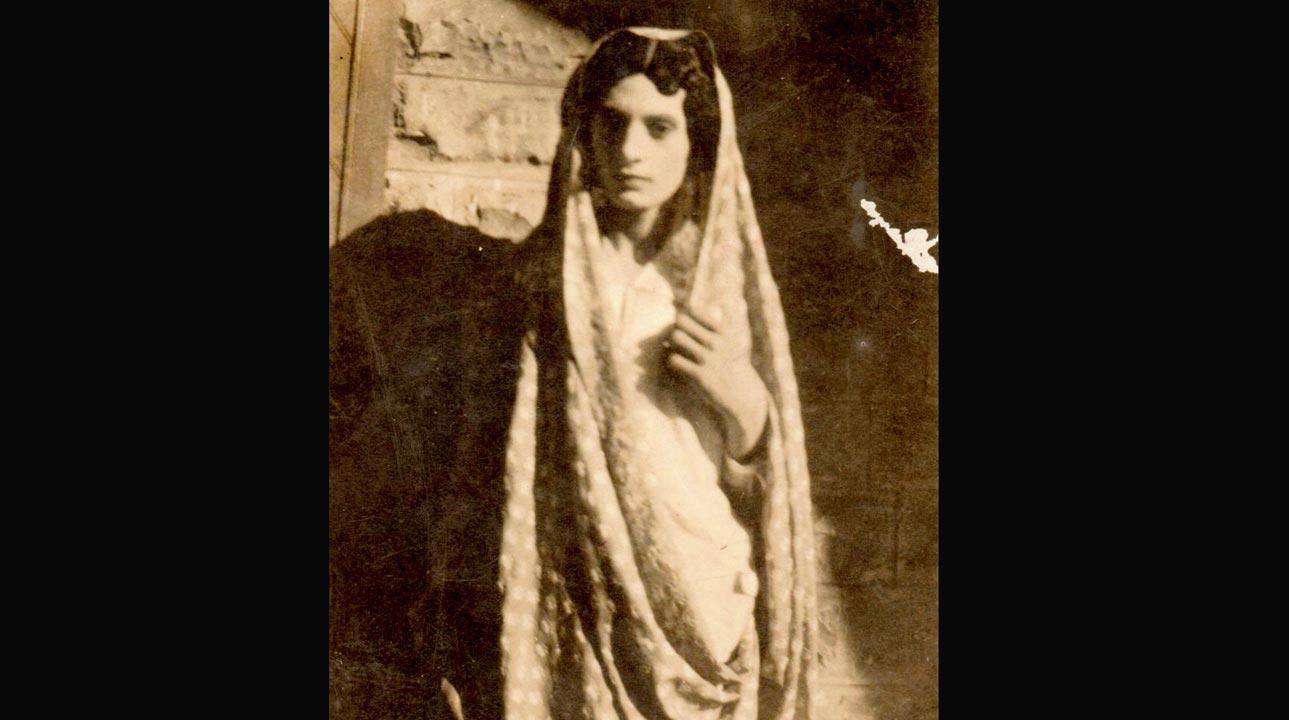Educationist Rati Wadia and homemaker Dinoo Damania on nurturing a rare 75-year friendship

Rati Wadia and Dinoo Damania
 Rati Wadia, 80, teacher & former principal
Rati Wadia, 80, teacher & former principal
ADVERTISEMENT
Dinoo Damania, 80, homemaker
Over seven decades of meeting almost daily is exceptional by any standard. These two friends do just this, alternately between facing Blocks G1 and D12-A in Shapur Baug, Grant Road.
 Rati Wadia and Dinoo Damania on the Block G1 balcony of Shapur Baug—in 2022 and 1963; (right) At Queen Mary School, 1957
Rati Wadia and Dinoo Damania on the Block G1 balcony of Shapur Baug—in 2022 and 1963; (right) At Queen Mary School, 1957
Octogenarians Rati Wadia and Dinoo Damania have grown up from the 1940s in their neighbourhood rich in local and community history.
The conversation is warmed some more by cups of “fudna ni choy”—mint tea further fragranced with lemon grass, best infused by Parsis. Steadily replenished by Rati, the legendary Queen Mary School teacher and Principal, who continues sharing the joys of Shakespeare with young Bombayites.
Rati Wadia: Our family bond covers three generations. We’ve done everything together, starting from New Model Infant School and Queen Mary School (QMS). At 80 today, we still eat dinner together every single evening in opposite homes in the colony.
Until the 1970s, Shapur Baug offered wonderful recreational activities. Popular plays cast men for women’s roles then. My dad Dara sportingly participated. He belonged to a small Parsi music ensemble club at Grant Road. We were regaled with typical songs, “Papri e papeta sathe kidha lagan” and “Soonamai Laamba, malya maneh samba, hata bau kaamna...”
Dinoo Damania: We really enjoyed those traditional pastimes and hand-games with rhyming chants, “Tuj-khalloo-peejun-saavak” and “Kakaryo Kumar”. Racing through homework, we rushed down to play Eye Spy and sail paper boats in water channels along the sides of buildings. We roller-skated, walked the compound on stilts and played plenty of Bezique daylong during vacations.

Dara Vania, Rati’s father, in a female role for a colony play, 1949
RW: Our colony has produced great creative artistes, including dancer Astad Deboo and violinist Siloo Panthaky who performed with Yehudi Menuhin.
DD: My husband’s family settled early here. Shapur Baug—probably the first Parsi colony fitted with lifts in buildings—welcomed residents from August 1, 1939, a month before the War broke out on September 3.
RW: Life centred around QMS, the baug and Aslaji Agiary next door, standing from the 1860s. Our parents were very close—mine, the Vanias, from Surat and Dinoo’s from Karachi. They became each other’s pillars of strength. Just as I’m the talker and Dinoo the listener, my mum Freny planned picnics and fun fairs, with her mother, Naju Aunty, offering quiet support.
DD: My father Noshir Dubash was honorary treasurer of the Parsi General Hospital. Freny Aunty would also treat us to outings and set our hair in curlers.
RW: Mummy gathered Dinoo and her sister Julie, with me and my sisters Perviz and Hira, as well as many other Baug children to narrate amazing stories of Zarathushtra and the Shahnameh, Krishna and Jesus. I’ve inherited her great love for mythology and poetry.
DD: In school we were a foursome with Sohini Kapadia and Sunita Mohinder. Rati’s strength was English, mine was maths. Freny Aunty spoilt us thoroughly while studying, so we waited for exams, never dreaded them. She’d serve delicious French fries and paper-thin potato-cheese sandwiches at midnight as we prepared for the morning paper.
RW: Coming from the UK as a breath of fresh air, our Principal, Betty Shelton, brilliantly designed the new QMS, from its entrance steps and auditorium to corner rooms and storage spaces. She introduced physics-chemistry-biology as subjects replacing physiology and hygiene. Dinoo and I helped her convert the lab for this.
DD: The Wilson College boys teased us for wearing identical clothes! On the first day, we joined a student procession protesting the suspension of a professor and demanded the University Vice-Chancellor’s removal from office.
RW: That incident drew me to activism. Dinoo married the labour lawyer Firoze Damania. Both our husbands were self-made men.
Mine, Dady, a chemist with Ciba Geigy, was a true partner and soulmate, letting me fully concentrate on QMS. He complemented me perfectly, as Firoze did Dinoo.
DD: We married after my BA in economics. Firoze fought deserving cases pro bono with unshakeable conviction and sincerity. Fond of classical music, he bought new audio equipment as soon as a certain technology arrived in the market. I’d learnt piano, completing the Trinity College certification till Grade 8. I remember repeatedly practising The Turkish March and The Maiden’s Prayer.
RW: Graduating with English Honours, I kept hearing Miss Shelton’s words ring in my ears: “Rati come back. The torch must pass on.” I began teaching in QMS at 22 and continued for 36 years, retiring as Principal in 2000.
I reposed total trust in my girls. Queen Marians are by and large honest, exemplary women making their mark in society. I’ve handed them belief in my favourite lines from Keats: “Beauty is truth, truth beauty—that is all ye know on earth and all ye need to know.”
I married in 1969, four years after Dinoo. We went on family trips to Matheran, Nainital and Nasik to the Sai Baba ashram. Celebrating personal occasions and feasts like Navroze, our kids popped in and out of each other’s homes the way we had. Dinoo was a beautiful homemaker and excellent cook. The children loved her chicken steak, prawn curry and Chinese fried rice.
DD: Of course, not everything matches. Our food tastes are totally different. Rati can happily survive on bread-butter-jam, cheese and eggs. I hate butter and eggs. My weakness is a sweet tooth.
RW: Ha ha, yes. Dinoo is extremely practical but has a stubborn streak.
DD: Closer than sisters, we won’t hesitate to say anything to each other. Such complete openness isn’t possible even with one’s own daughter or sister.
RW: Despite health issues, she remains brave and always cheerful. Keeping up one’s morale is most important. We had a lovely time at my flat when hers was recently under repair. This New Year she insisted we dress up and take photos. The kids were away. I had a sleepover in her house.
DD: Life is uncertain. Sukh-dukh na vakhat ma saathe—sharing good times and bad—we realise how blessed it is to be together daily at this stage of our lives.
Author-publisher Meher Marfatia writes monthly on city friendships. You can reach her at [email protected]/www.meher marfatia.com
 Subscribe today by clicking the link and stay updated with the latest news!" Click here!
Subscribe today by clicking the link and stay updated with the latest news!" Click here!







